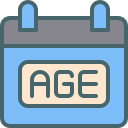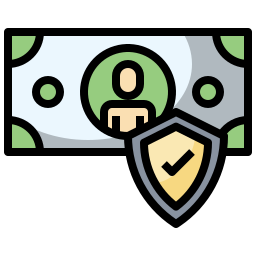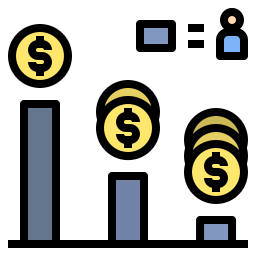Washington Senior Assistance Programs, Benefits, and Grants (2026)
 Senior Population: 1,854,161
Senior Population: 1,854,161 Median Age: 70.2
Median Age: 70.2 Veterans: 14.1%
Veterans: 14.1% Disability: 28.9%
Disability: 28.9% Renters: 21.4%
Renters: 21.4% With Social Security Income: 72.3%
With Social Security Income: 72.3% With Food Stamp/SNAP Benefits: 10.5%
With Food Stamp/SNAP Benefits: 10.5% Below 100% of Poverty Level: 9.5%
Below 100% of Poverty Level: 9.5%Last updated:
Before exploring Washington-specific programs, see which senior benefits you can claim nationwide to boost your income.
If You Need Emergency Help (Start Here)
For urgent help with food, shelter, or bills, start with emergency assistance for seniors in Washington.
- Call 2-1-1 to find urgent local help for rent, food, shelter, and bills, or visit Washington 211: https://wa211.org
- Facing eviction? Low‑income tenants in Washington have a right to a lawyer in eviction cases. Call the Eviction Defense Screening Line: 1-855-657-8387 (Office of Civil Legal Aid) — details: https://ocla.wa.gov/programs-services/eviction-right-to-counsel/
- Abandonment, abuse, neglect, or financial exploitation of a vulnerable adult: Adult Protective Services (APS) 1-877-734-6277 — learn more: https://www.dshs.wa.gov/altsa/aps
- Behavioral health crisis: Call or text 988 — info: https://988lifeline.org
- Homeless or at risk: Contact your local Coordinated Entry provider via 2‑1‑1 or see Commerce homelessness help: https://www.commerce.wa.gov/serving-communities/homelessness/
- Food right now: Find a nearby food bank via Northwest Harvest’s partner finder: https://www.northwestharvest.org/need-food/ or Food Lifeline’s map: https://foodlifeline.org/need-food/
Nonprofits and charities that help seniors often fill urgent needs for food, rent, and home essentials.
Key Takeaways
Review key 2026 Social Security and SSI updates to estimate monthly income and check benefit changes in Washington.
- Washington offers strong help for seniors through Apple Health (Medicaid), in‑home care programs, property tax relief, energy assistance, nutrition, and free Medicare counseling.
- Start with your local Area Agency on Aging (AAA) for personalized guidance and applications: https://www.dshs.wa.gov/ALTSA/resources
- For healthcare and long‑term care at home, look at Community First Choice (CFC), Medicaid Alternative Care (MAC), and Tailored Supports for Older Adults (TSOA): https://www.dshs.wa.gov/altsa/long-term-services-supports
- If you’re struggling with rent, utilities, food, or legal issues, use 2‑1‑1 and the official links in this guide to reach the right program quickly.
- Some COVID‑era programs have ended. The Affordable Connectivity Program (internet discount) is no longer funded. Use Lifeline and low‑cost ISP plans instead.
- Realistic timing: many benefits involve paperwork and waitlists. Apply early, respond to mail promptly, keep copies, and ask your AAA for help.
Supplement your savings with everyday senior discounts and benefits offered by major brands and utilities.
Quick Help at a Glance
| Need | Program (official info) | Who it helps | How to apply |
|---|---|---|---|
| Health coverage | Apple Health (Medicaid) for seniors and people with disabilities – HCA | Low/moderate income, 65+, or disabled | Apply via Washington Healthplanfinder: https://www.wahealthplanfinder.org or call HCA 1‑800‑562‑3022: https://www.hca.wa.gov |
| Medicare counseling | SHIBA – Statewide Health Insurance Benefits Advisors (OIC) | Anyone with Medicare | Call 1‑800‑562‑6900 or find local help: https://www.insurance.wa.gov/shiba |
| In‑home help | Community First Choice (CFC); MAC/TSOA – ALTSA | Seniors needing help with daily activities; caregivers | Learn and connect via ALTSA/AAA: https://www.dshs.wa.gov/altsa/long-term-services-supports |
| Food | Basic Food (SNAP) – DSHS | Low-income households | Apply online: https://www.washingtonconnection.org or call DSHS 1‑877‑501‑2233 |
| Property taxes | Senior/Disabled Property Tax Exemption & Deferral – Dept. of Revenue | 61+ or disabled, within income limits | Start here: https://dor.wa.gov/taxes-rates/property-tax-senior-disabled-exemption |
| Utilities (heat/power) | LIHEAP – Dept. of Commerce | Low-income households | Find your local agency: https://www.commerce.wa.gov/growing-the-economy/energy/low-income-home-energy-assistance/ |
| Rent & housing stability | HEN (Housing & Essential Needs) – Commerce; local rent help via 2‑1‑1 | Low-income adults unable to work 90+ days; local programs vary | HEN info and providers: https://www.commerce.wa.gov/serving-communities/housing/housing-and-essential-needs/; also call 2‑1‑1 |
| Transportation to care | Non‑Emergency Medical Transportation – HCA | Apple Health/CHIP members | Find your broker: https://www.hca.wa.gov/free-or-low-cost-health-care/i-need-medical-dental-or-vision-care/transportation-services-nonemergency |
| Prescriptions | ArrayRx Discount Card – HCA | Anyone; no cost | Enroll: https://www.arrayrxcard.com |
| Legal help | CLEAR Senior line – Northwest Justice Project | Washingtonians 60+ | Call 1‑888‑387‑7111 or visit https://nwjustice.org/get-legal-help |
According to the U.S. Census Bureau’s 2023 American Community Survey, about 1.34 million Washingtonians are age 65+ (roughly 17.1% of the state). Source: Census Bureau ACS 2023 (table S0101): https://data.census.gov/table?q=S0101:+Washington&t=Age+and+Sex
Prepare for the unexpected by reviewing emergency assistance for seniors available in Washington.
Getting Personalized Help
Area Agencies on Aging (AAA), Information & Assistance (I&A), and ADRCs
- Find your local AAA: https://www.dshs.wa.gov/ALTSA/resources
- What they do: assess your needs, explain options, help with applications (Medicaid, meals, home care, caregiver support), and connect you to local programs.
- Aging & Disability Resource Centers (ADRCs) offer unbiased options counseling and referrals.
Your local Area Agencies on Aging in Washington can connect you to free case management, meals, and emergency funding.
If you’re relocating or helping family in another state, use our Area Agencies on Aging directory to find local help anywhere.
Tip: If paperwork feels overwhelming, ask AAA/I&A for help. Keep copies of IDs, Social Security cards, proof of income, bank statements, and lease/utility bills.
Healthcare, Medicare, and Long‑Term Care
Those with limited income may qualify for Medicaid for seniors, which covers essential medical and home care costs.
Medicare help (free, unbiased)
- SHIBA (Office of the Insurance Commissioner): Compare plans, find savings (Extra Help, Medicare Savings Programs), and fix billing issues. Call 1‑800‑562‑6900 or visit https://www.insurance.wa.gov/shiba
Apple Health (Medicaid) for seniors and people with disabilities
- Apple Health is Washington’s Medicaid program (Health Care Authority).
- What it can cover: doctor visits, hospital care, prescriptions, dental (adult dental is covered), medical equipment, and long‑term services and supports if eligible.
- How to apply: Washington Healthplanfinder (https://www.wahealthplanfinder.org) or through DSHS (https://www.washingtonconnection.org). HCA information hub: https://www.hca.wa.gov
If you’re on both Medicare and Medicaid, our Dual Eligible Guide for Seniors explains how to maximize your coverage.
Reality check: Financial and functional eligibility rules are detailed and change over time. If your income or assets are a bit over the limits, ask about “spenddown,” Miller Trusts (Qualified Income Trusts), or spousal impoverishment protections. SHIBA or your AAA can explain.
In‑home care and supports (Aging and Long‑Term Support Administration – ALTSA)
- Community First Choice (CFC): Personal care in your home (bathing, dressing, meal prep), personal emergency response systems, and limited assistive technology for eligible Apple Health members. Info: https://www.dshs.wa.gov/altsa/long-term-services-supports/community-first-choice-cfc
- Medicaid Alternative Care (MAC): Supports unpaid caregivers of an adult who would otherwise qualify for Medicaid LTSS. Services can include respite, training, and supplies. https://www.dshs.wa.gov/altsa/long-term-services-supports/medicaid-alternative-care-mac
- Tailored Supports for Older Adults (TSOA): For adults 55+ who need help to stay at home but are not eligible for Medicaid. Offers a benefit allowance for services like respite, personal care, and caregiver support. https://www.dshs.wa.gov/altsa/long-term-services-supports/tailored-supports-older-adults-tsoa
- Home & Community Services (HCS) offices: Apply for Medicaid LTSS and get a case manager. Find HCS: https://www.dshs.wa.gov/ALTSA/resources
You can borrow or replace essential mobility aids through free medical equipment for seniors programs.
Transportation to medical care
- Non‑Emergency Medical Transportation (NEMT) for Apple Health (Medicaid) members: brokers provide rides (bus, taxi, wheelchair van, ferry, air when necessary). Details and broker list: https://www.hca.wa.gov/free-or-low-cost-health-care/i-need-medical-dental-or-vision-care/transportation-services-nonemergency
Prescription savings
- ArrayRx Discount Card (no cost): A multi‑state program led by HCA providing prescription discounts. Enroll here: https://www.arrayrxcard.com
Use free prescription assistance for seniors programs to lower medication costs through national and state partners.
Dental care
- Adult dental is covered under Apple Health. Find dental providers: https://www.hca.wa.gov/health-care-services-supports/benefits-and-services/dental-services
- Donated Dental Services for medically fragile or disabled seniors (Dental Lifeline Network – Washington): https://dentallifeline.org/washington/
For dental care, cleanings, and dentures, check dental grants in Washington for free or low-cost clinics.
You can also use nationwide programs for free and low-cost dental care for seniors, including DDS, clinics, and dental schools.
Table: Health and Long‑Term Care Programs
| Program | What it does | Who it’s for | Where to learn/apply |
|---|---|---|---|
| SHIBA | Free Medicare counseling | Anyone with Medicare | https://www.insurance.wa.gov/shiba |
| Apple Health (Medicaid) | Medical, dental, vision, Rx | Low/moderate income seniors & disabled | https://www.hca.wa.gov |
| Community First Choice (CFC) | In‑home personal care and supports | Apple Health members needing help with daily tasks | https://www.dshs.wa.gov/altsa/long-term-services-supports/community-first-choice-cfc |
| MAC / TSOA | Supports for unpaid caregivers; services for older adults not on Medicaid | Adults 55+ and caregivers | https://www.dshs.wa.gov/altsa/long-term-services-supports |
| NEMT | Rides to covered medical appointments | Apple Health/CHIP members | https://www.hca.wa.gov/…/transportation-services-nonemergency |
| ArrayRx | Prescription discounts | Anyone (free card) | https://www.arrayrxcard.com |
If you need continuous medical or in-home care, explore long-term care options for seniors available in your area.
Money, Cash, and Basic Needs
If you’re struggling to make ends meet, learn about financial assistance for seniors programs for direct grants and monthly aid.
Basic Food (SNAP)
If groceries are a concern, food assistance for seniors programs like SNAP and Meals on Wheels can make a big difference.
- Monthly grocery help via EBT card, usable at grocery stores and many farmers markets. Learn and apply: https://www.dshs.wa.gov/esa/community-services-offices/basic-food
- Washington Connection application portal: https://www.washingtonconnection.org
Senior nutrition programs
- Meals on Wheels and community meal sites are run through AAAs and local nonprofits. Start with your AAA: https://www.dshs.wa.gov/ALTSA/resources
- Senior Farmers Market Nutrition Program (SFMNP): Provides coupons for fresh fruits and vegetables from participating farmers markets. Administered through AAAs with state coordination. See program overview via WSDA: https://agr.wa.gov/services/grants-and-loans/farm-to-school-and-direct-marketing/farmers-market-nutrition-programs
Cash assistance (limited and situation‑specific)
- Aged, Blind, or Disabled (ABD) cash assistance: Modest monthly cash for adults who are likely to meet federal disability criteria; often paired with a referral to HEN for housing/essentials. Learn more: https://www.dshs.wa.gov/esa/community-services-offices/aged-blind-or-disabled-cash-assistance
- HEN (Housing and Essential Needs) Referral Program: Rent/utility help and essential items for eligible adults unable to work for 90+ days. Program info and provider list: https://www.commerce.wa.gov/serving-communities/housing/housing-and-essential-needs/
- Emergency funds: Some cities/counties and charities offer one‑time help with rent, utilities, or essentials. Call 2‑1‑1.
If a loved one helps you at home, review resources for family caregivers for training and small financial stipends.
Reality check: ABD and HEN benefits are limited and may have waitlists. Keep all mail from DSHS and providers and respond quickly.
Housing, Rent Help, and Home Repairs
Explore housing assistance for seniors in Washington for rent subsidies, repair grants, and weatherization support.
Rental help and homelessness prevention
- Coordinated Entry: The front door to homeless services (shelter, rapid rehousing, permanent supportive housing). Access via 2‑1‑1 or your county’s portal listed by Commerce: https://www.commerce.wa.gov/serving-communities/homelessness/
- Right to Counsel for evictions (low‑income tenants): Call 1‑855‑657‑8387 (OCLA) — https://ocla.wa.gov/programs-services/eviction-right-to-counsel/
- Housing Choice Vouchers (Section 8) and public housing: Apply through your local housing authority. Many have closed/waitlisted applications; check regularly. Directory via WA Housing Authorities Association: https://www.wahousingalliance.org/housing-authorities
- HEN (see above): If referred by DSHS, HEN can support rent/utility payments and essentials.
If you’re struggling with monthly rent, review housing & rent assistance programs for seniors for federal and local options.
Homeowners: property tax relief (Washington Dept. of Revenue)
- Exemption: Seniors 61+ or persons with disabilities may qualify for a reduction in property taxes based on income thresholds set by your county. Info and eligibility: https://dor.wa.gov/taxes-rates/property-tax-senior-disabled-exemption
- Deferral: Postpone paying property taxes (they become a lien with interest); useful if cash‑flow is tight. Details: https://dor.wa.gov/taxes-rates/property-tax-deferral
Table: Property Tax Relief Options
| Program | Key points | Where to apply |
|---|---|---|
| Senior/Disabled Exemption | Reduces/waives part of property tax; age 61+ or disabled; income thresholds vary by county | County Assessor (start at Dept. of Revenue page): https://dor.wa.gov/taxes-rates/property-tax-senior-disabled-exemption |
| Senior/Disabled Deferral | Defers taxes; repaid with interest when home is sold/estate settled | County Assessor; overview: https://dor.wa.gov/taxes-rates/property-tax-deferral |
Tip: Call your County Assessor’s office for help filling out forms. Many allow year‑round applications.
Home repairs and weatherization
- Weatherization Assistance Program (Commerce): Free energy upgrades (insulation, air sealing, heating system repair/replacement) for eligible households. https://www.commerce.wa.gov/growing-the-economy/energy/weatherization-and-energy-efficiency/
- LIHEAP Energy Assistance (Commerce): Helps pay heating bills; may include emergency heating repairs. https://www.commerce.wa.gov/growing-the-economy/energy/low-income-home-energy-assistance/
- USDA Section 504 Home Repair (Rural Development): Grants up to $10,000 for essential home safety repairs for very‑low‑income homeowners age 62+. Loans available for others. Washington details: https://www.rd.usda.gov/programs-services/single-family-housing-programs/single-family-housing-repair-loans-grants/wa
- Rebuilding Together (local affiliates): Free critical home repairs and modifications for low‑income homeowners, including seniors. King County: https://rtseattle.org/; South Sound: https://rebuildingtogetherss.org/
Keep your home safe and accessible with home repair grants for seniors, available through HUD and local nonprofits.
Not sure about eligibility, inspections, or timelines? Our home repair grants FAQs walk through common scenarios.
Reality check: Home repair grants are competitive and funding is limited. Apply early, respond to requests for documents, and be flexible on scheduling.
Utilities, Phone, and Internet
If high energy bills are a burden, look into energy and utility assistance for seniors to cut your monthly costs.
- LIHEAP (heat/electric): Apply through your local Community Action Agency. https://www.commerce.wa.gov/growing-the-economy/energy/low-income-home-energy-assistance/
- Weatherization (see above): Long‑term energy savings and comfort upgrades. https://www.commerce.wa.gov/growing-the-economy/energy/weatherization-and-energy-efficiency/
- Lifeline (FCC): Monthly discount on phone or broadband for low‑income households. Check eligibility and apply: https://www.lifelinesupport.org/do-i-qualify/
- Internet discounts after ACP: The federal Affordable Connectivity Program ran out of funding in 2024. Look for ISP low‑cost plans (examples include Xfinity Internet Essentials, Comcast; Access from AT&T; Spectrum Internet Assist). Ask your provider for senior/low‑income plans and combine with Lifeline if eligible.
Long-term savings are possible through energy efficiency grants for seniors, which fund weatherization and appliance upgrades.
Table: Utility and Communications Discounts
| Support | What it covers | Where to apply |
|---|---|---|
| LIHEAP | Heating/electric bill help; emergency assistance | https://www.commerce.wa.gov/…/low-income-home-energy-assistance/ |
| Weatherization | Free energy‑saving home upgrades | https://www.commerce.wa.gov/…/weatherization-and-energy-efficiency/ |
| Lifeline | Phone/broadband discount | https://www.lifelinesupport.org/do-i-qualify/ |
| Local utility discounts | Discounts vary by utility (examples: Seattle City Light/Utility Discount Program; Tacoma Public Utilities; Puget Sound Energy) | Seattle UDP: https://www.seattle.gov/humanservices/services-and-programs/utility-discount-program; Tacoma: https://mytpu.org/community/assistance-programs/; PSE: https://www.pse.com/account-and-billing/payment-assistance |
Transportation and Mobility
If transportation is a barrier, transportation support for seniors programs provide free or discounted rides.
- Regional Reduced Fare Permit (RRFP) – Puget Sound: Discounted fares for riders 65+ on buses, Link light rail, Sounder, ferries (some agencies). Info: https://www.soundtransit.org/ride-with-us/how-to-pay/fares/regional-reduced-fare-permit
- ADA Paratransit: Door‑to‑door rides for eligible riders unable to use fixed‑route transit. Apply through your local transit agency.
- Volunteer driver programs and community shuttles: Ask your AAA or call 2‑1‑1 for local options.
- Medical rides: Apple Health NEMT (see Healthcare). https://www.hca.wa.gov/…/transportation-services-nonemergency
Safety, Legal, and Consumer Protection
- Adult Protective Services (APS): Report abuse, neglect, or exploitation of vulnerable adults. 1‑877‑734‑6277; https://www.dshs.wa.gov/altsa/aps
- Long‑Term Care Ombudsman: Help resolve issues in nursing homes, assisted living, adult family homes, and memory care. https://www.waombudsman.org
- Legal help for seniors: CLEAR Senior line (Northwest Justice Project) 1‑888‑387‑7111; https://nwjustice.org/get-legal-help
- Eviction Right to Counsel: 1‑855‑657‑8387; https://ocla.wa.gov/programs-services/eviction-right-to-counsel/
- Consumer protection and scams: Washington Attorney General’s Office – file complaints and see scam alerts: https://www.atg.wa.gov
Skip ‘guaranteed grant’ offers—read free money myths, scams, and real help.
Table: Legal and Safety Helplines
| Topic | Helpline | Learn more |
|---|---|---|
| Abuse/neglect/exploitation | APS: 1‑877‑734‑6277 | https://www.dshs.wa.gov/altsa/aps |
| Problems in long‑term care | Ombudsman | https://www.waombudsman.org |
| General civil legal help (60+) | CLEAR Senior: 1‑888‑387‑7111 | https://nwjustice.org/get-legal-help |
| Eviction defense | 1‑855‑657‑8387 (OCLA) | https://ocla.wa.gov/…/eviction-right-to-counsel/ |
| Consumer scams | Attorney General | https://www.atg.wa.gov |
Use our Federal Poverty Level benefits checklist to prep income proofs and documents before applying.
Taxes, Money Management, and Benefits Checkups
- Property tax relief: See the Exemption and Deferral programs: https://dor.wa.gov/taxes-rates/property-tax-senior-disabled-exemption
- Free tax prep: AARP Foundation Tax‑Aide (seasonal): https://www.aarp.org/money/taxes/aarp_taxaide/
- Benefits screening: Use Washington Connection to see if you qualify for state benefits: https://www.washingtonconnection.org
Save hundreds each year by applying for property tax relief for seniors, offered by Washington counties.
Inclusive Resources
Veterans and Military Families
- Washington State Department of Veterans Affairs (WDVA): Claims help (VA Pension, Aid & Attendance), state and federal benefits, counseling, and long‑term care homes. Main page: https://www.dva.wa.gov; Claims assistance: https://www.dva.wa.gov/veterans-service-members-and-their-families/veterans-benefits/claims-assistance
- VA Aid & Attendance/Housebound: Extra monthly payment for eligible veterans/spouses needing daily help. Info: https://www.va.gov/pension/aid-attendance-housebound/
- County Veterans Assistance Fund: Emergency help with rent, utilities, and basic needs for eligible veterans; apply through your county veterans office (ask WDVA or 2‑1‑1).
Many programs set limits by the Federal Poverty Level (FPL)—check where your household fits.
Reality check: VA benefits decisions can be slow. Keep medical evidence organized and work with a WDVA service officer.
LGBTQ+ Seniors
- GenPride (Seattle/King County): Classes, support groups, and referrals for LGBTQ+ older adults. https://genprideseattle.org
- Long‑Term Care Ombudsman: Trained to advocate for residents’ rights, including LGBTQ+ issues: https://www.waombudsman.org
- Anti‑discrimination: Washington law protects against discrimination in housing, employment, and public accommodations. Learn more: Washington State Human Rights Commission: https://www.hum.wa.gov
Seniors with Disabilities
- DSHS Developmental Disabilities Administration (for eligible individuals): https://www.dshs.wa.gov/dda
- Apple Health, Medicare Savings Programs, and CFC can work together to cover services and supports. Start with SHIBA and AAA for coordination.
- Durable medical equipment: Apple Health may cover; ask providers and see HCA coverage pages: https://www.hca.wa.gov/health-care-services-supports/benefits-and-services
Don’t overlook mental health support for seniors, which includes counseling and group programs across Washington.
Tribal and Urban Native Elders
- Title VI Native American Aging Programs (nutrition, caregiver support) are run by tribes; find programs via your tribal government or use ACL’s locator: https://olderindians.acl.gov
- Indian Health Service and Tribal Health Clinics: Care for eligible AI/AN elders; coordinate with Medicare/Medicaid. IHS: https://www.ihs.gov
- BIA Housing Improvement Program (HIP) for eligible tribal members needing critical home repairs: https://www.bia.gov/service/housing-improvement-program
Tip: Ask your AAA and tribal elder program about combining Title VI meals with local senior meal sites.
Rural Seniors and Limited Access Areas
- Use 2‑1‑1 and your AAA to find volunteer driver programs, dial‑a‑ride, mobile food pantries, and traveling health clinics.
- Non‑Emergency Medical Transportation (NEMT) can arrange long‑distance rides and ferry/air when medically necessary: https://www.hca.wa.gov/…/transportation-services-nonemergency
- USDA Section 504 and Weatherization can be especially valuable for rural homeowners (see links above).
Resources by Region (Selected)
Note: Each region has an Area Agency on Aging (AAA). Use the AAA locator to confirm your office: https://www.dshs.wa.gov/ALTSA/resources
- King County (Seattle)
- AAA/Community Living Connections: https://communitylivingconnections.org
- Sound Generations (Meals on Wheels, transportation, caregiver support): https://soundgenerations.org
- Seattle Utility Discount Program: https://www.seattle.gov/humanservices/services-and-programs/utility-discount-program
- Regional Reduced Fare Permit (Puget Sound): https://www.soundtransit.org/ride-with-us/how-to-pay/fares/regional-reduced-fare-permit
- Pierce County (Tacoma)
- Pierce County Aging & Disability Resources: https://www.piercecountywa.gov/1986/Aging-and-Disability-Resources
- Tacoma Public Utilities assistance: https://mytpu.org/community/assistance-programs/
- Catholic Community Services (South Sound) – senior programs: https://ccsww.org/get-help/senior-services/
- Snohomish County
- Homage Senior Services (AAA): https://homage.org
- PUD assistance programs: https://www.snopud.com/customer-service/assistance/
- Spokane/Eastern Washington
- Aging & Long Term Care of Eastern Washington (AAA): https://www.altcew.org
- Avista Utilities assistance: https://www.myavista.com/account/assistance
- Southwest Washington (Clark/Cowlitz)
- Area Agency on Aging & Disabilities of Southwest Washington: https://www.helpingelders.org
- Clark Public Utilities assistance: https://www.clarkpublicutilities.com/customers/account-assistance/
- Yakima and Kittitas Counties
- Aging & Long Term Care (South‑Central WA AAA): https://www.altsa.dshs.wa.gov/altcscw
- People For People (transport and services): https://www.pfp.org
- Olympic Peninsula (Kitsap, Jefferson, Clallam)
- Olympic Area Agency on Aging: https://www.o3a.org
- Kitsap Transit ACCESS (paratransit): https://kitsaptransit.com/access
If your county isn’t listed: call 2‑1‑1 or use the AAA locator to find local contacts.
Connect with senior centers in Washington for help applying to benefit programs and accessing social services.
In the Seattle area, our Seattle senior assistance page lists local offices, phone numbers, and programs.
If you live near the border, compare grants for seniors in Oregon to see regional differences.
Frequently Asked Questions (FAQs)
- How do I know if I qualify for Apple Health (Medicaid) as a senior?
- Eligibility depends on income, assets, and medical need. There are different pathways (age 65+, disability, long-term care). Start with HCA’s eligibility pages: https://www.hca.wa.gov/health-care-services-supports/apple-health-medicaid-coverage and apply at https://www.wahealthplanfinder.org or with help from your AAA.
- I have Medicare. Can I also get Apple Health?
- Yes, if you meet financial criteria. Apple Health can help pay Medicare premiums and, in some cases, provide additional benefits. Ask SHIBA about Medicare Savings Programs and Apple Health: https://www.insurance.wa.gov/shiba
- What’s the fastest way to find local rent or utility help?
- Call 2-1-1. They use your ZIP code to connect you to open programs. For heat/electric, also contact your local LIHEAP agency: https://www.commerce.wa.gov/…/low-income-home-energy-assistance/
- Is there still Emergency Rental Assistance from COVID funds?
- The large state COVID-era programs have ended. Some local rent help continues through counties, cities, and charities. Use 2-1-1 and ask your AAA or Community Action Agency.
- How do I get help to stay in my home instead of a nursing facility?
- Ask your AAA about Community First Choice (CFC), TSOA, and MAC. If you may qualify for Medicaid long-term services, contact HCS for an assessment: https://www.dshs.wa.gov/ALTSA/resources
- What’s the property tax break for seniors?
- Washington offers a Property Tax Exemption and a Deferral for seniors 61+ and people with disabilities who meet income rules. Start here: https://dor.wa.gov/taxes-rates/property-tax-senior-disabled-exemption and contact your County Assessor.
- Can I get a ride to medical appointments?
- If you have Apple Health, use NEMT through your regional broker: https://www.hca.wa.gov/…/transportation-services-nonemergency. If not, look into volunteer driver programs via your AAA or paratransit if you qualify.
- Where can I get free or low‑cost dental care?
- Apple Health covers adult dental. Find providers here: https://www.hca.wa.gov/health-care-services-supports/benefits-and-services/dental-services. Also see Dental Lifeline Network (Donated Dental Services): https://dentallifeline.org/washington/
- I’m a veteran. Who can help me file for benefits?
- Washington Department of Veterans Affairs (WDVA) provides free claims assistance: https://www.dva.wa.gov/…/veterans-benefits/claims-assistance. Call WDVA for your nearest service officer.
- I’m being scammed or pressured over the phone. What should I do?
- Hang up. Report it to the WA Attorney General’s Office: https://www.atg.wa.gov. If you shared personal info, consider placing a fraud alert with the credit bureaus.
Sources and Official References
- U.S. Census Bureau, ACS 2023 age data (Washington): https://data.census.gov/table?q=S0101:+Washington
- Health Care Authority (Apple Health/Medicaid): https://www.hca.wa.gov
- Washington Healthplanfinder (apply for coverage): https://www.wahealthplanfinder.org
- ALTSA (Aging and Long‑Term Support Administration) programs (CFC, MAC, TSOA, HCS): https://www.dshs.wa.gov/altsa/long-term-services-supports and AAA locator: https://www.dshs.wa.gov/ALTSA/resources
- SHIBA (Medicare counseling): https://www.insurance.wa.gov/shiba
- LIHEAP (Commerce): https://www.commerce.wa.gov/growing-the-economy/energy/low-income-home-energy-assistance/
- Weatherization (Commerce): https://www.commerce.wa.gov/growing-the-economy/energy/weatherization-and-energy-efficiency/
- USDA Section 504 Home Repair (WA): https://www.rd.usda.gov/…/single-family-housing-repair-loans-grants/wa
- Property Tax Exemption/Deferral (Dept. of Revenue): https://dor.wa.gov/taxes-rates/property-tax-senior-disabled-exemption
- Basic Food (SNAP) – DSHS: https://www.dshs.wa.gov/esa/community-services-offices/basic-food
- ArrayRx Discount Card (HCA): https://www.arrayrxcard.com
- APS: https://www.dshs.wa.gov/altsa/aps
- Long‑Term Care Ombudsman: https://www.waombudsman.org
- Eviction Right to Counsel (OCLA): https://ocla.wa.gov/programs-services/eviction-right-to-counsel/
- CLEAR Senior line (NJP): https://nwjustice.org/get-legal-help
- Washington 211: https://wa211.org
Disclaimer
Programs, eligibility rules, funding levels, and application processes can change. Always confirm details with the official agency or organization linked in this guide. This guide is for general information and is not legal, tax, financial, or medical advice.
About This Guide
by the GrantsForSeniors.org Editorial Team
The GrantsForSeniors.org editorial team has been building benefit and assistance resources for seniors nationwide since 2020. We research programs across all 50 states by reviewing government websites, checking agency updates, and gathering information from available sources.
Our Commitment to You:
- Experience & Expertise: The information in this guide is compiled and reviewed by a team with experience in senior services and financial aid programs. We are committed to sharing our knowledge to help you find the support you need.
- Authority & Trust: We rely on verified sources, including government agencies, non-profit organizations, and official program websites, to ensure the accuracy of our content. Our goal is to be a trusted authority you can rely on for credible information.
- Clarity & Accessibility: We understand that seeking financial assistance can be challenging. This guide is designed to be clear and easy to understand, breaking down complex topics into actionable steps.
While we work hard to provide the most accurate information available, please note that program details and eligibility requirements can change. We recommend always checking with the official program source or agency website for the most current information, as we are not official agencies but rather compile available information.
- Last Updated: January 2026
- Sources Verified: January 2026
- Next Review: April 2026
If you find outdated information, discover new resources, or have questions, please contact us at info@grantsforseniors.org. We’re here to help seniors find resources that can make a real difference in their daily lives.


 Data is taken from 2024 (latest): ACS 1-Year Estimates Subject Tables.
Data is taken from 2024 (latest): ACS 1-Year Estimates Subject Tables.

